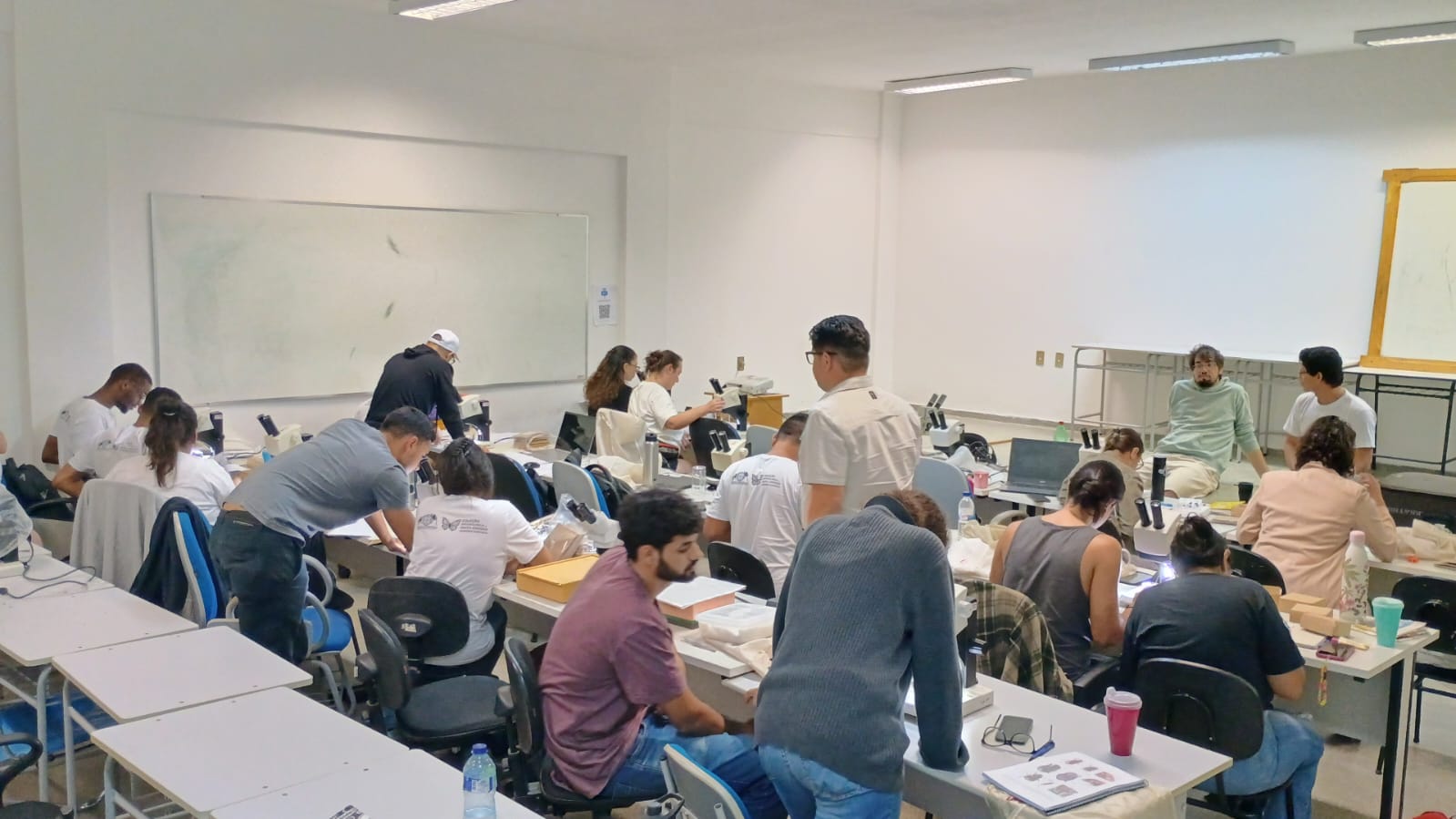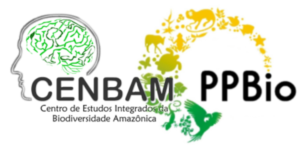Languages
Practical Scarabaeinae Identification Course is taught at UFMT.
From September 21 to 29, 2024, the Laboratory of Scarabaeoidology and the Entomological Collection of Mato Grosso Eurides Furtado (CEMT) held another edition of the Practical Identification Course for Scarabaeinae at the Biodiversity Center of UFMT.
This year's course included students from twelve Brazilian states, as well as participants from Uruguay, Mozambique, Colombia, Bolivia, and Ecuador, in addition to staff from UFMT. It was supported by the Graduate Programs in Zoology and Ecology and Biodiversity Conservation at UFMT, the Graduate Program in Entomology and Biodiversity Conservation at UFGD, and various PPBio projects. The course audience consisted of undergraduates, graduates, researchers, and professors from various teaching and research institutions working with dung beetles.

The beetles of the subfamily Scarabaeinae - known as dung beetles - are a group of over 6,000 known species. They are considered important indicators of biodiversity and provide several vital environmental services for agriculture, such as the removal and burial of cattle manure, helping to return nutrients to the soil and hindering the development of larvae and nematodes. The Laboratory of Scarabaeoidology conducts taxonomic work on the group, and CEMT has the largest collection in South America. “The idea of the course is to train personnel to make the first identification of specimens, ensuring the progress of the dozens to hundreds of concurrent studies conducted by various research groups using the group,” says Professor Fernando Z. Vaz de Mello, who has taught the course in all editions.

